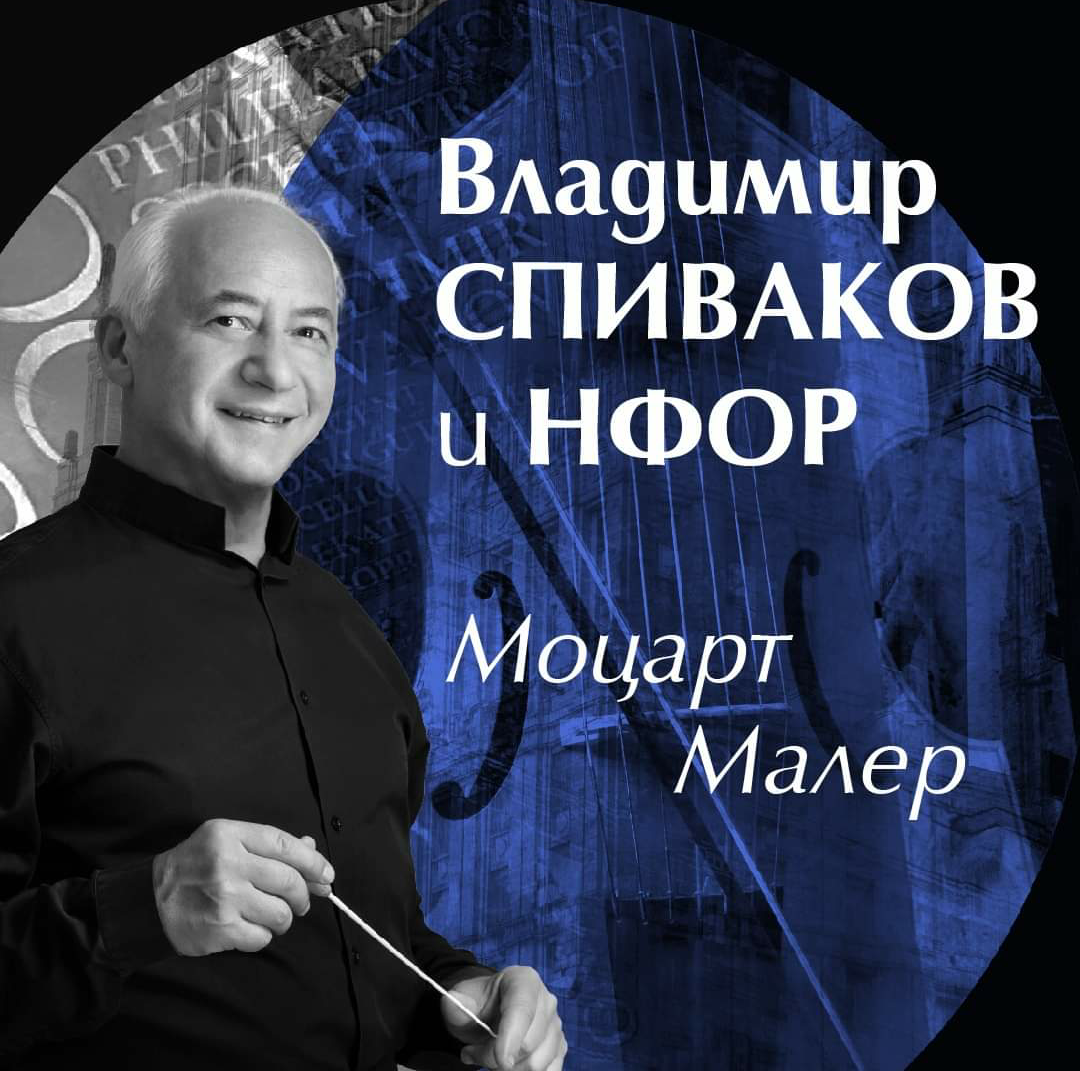December 8, 2020 | Svetlanov Hall of the Moscow Performing Arts Center
"Maestro Spivakov and the NPR" subscription series
Soloists: Anna Aglatova, soprano
Timofey Vladimirov, piano
Conductor – Vladimir Spivakov
Mozart. Concerto No. 20 for piano and orchestra in D minor, KV 466
Mahler. Symphony No. 4 in G major
Vladimir Spivakov and the NPR will continue their own subscription series at the Moscow Performing Arts Center with works by the great Austrian composers Mozart and Mahler. The concert will feature Timofey Vladimirov, the winner of the 2nd edition of the Vladimir Krainev Moscow International Piano Competition, and Anna Aglatova, a top soloist of the Bolshoi Theatre.
The evening will open with the first of the two minor piano concertos by the Viennese classic - No. 20, KV 466, written by Mozart in 1785 for his own performance at the famous Viennese academies - large musical nights dedicated to one author. Like other works in D minor by Mozart (the famous Requiem has the “tonality of death”, the opera “Don Giovanni” begins and ends in it, etc.), this piano concerto belongs to the most dramatic scores of his creation. The concerto was highly acclaimed by Beethoven, who wrote his own cadenza to it (the author's cadenza was not preserved, at the premiere Mozart, as was common, improvised).
Part 2 will feature the Fourth Symphony by Gustav Mahler, “the last of the Mohicans” of the Austro-German romantic symphonism. This opus has an original concept and a philosophical finale based on the children's song Der Himmel hängt voll Geigen from the collection of German folk songs and ballads Des Knaben Wunderhorn. Vladimir Spivakov included Mahler's music into the permanent repertoire of the NPR from its very first seasons, considering it a measure of performing skills both for any conductor and any orchestra . “The clue to Mahler's Symphonies lies, in addition to their romantic lyricism, in numerous mundane genres, used by the Austrian master sometimes contrary to good taste, - writes Professor Valentina Kholopova. - Spivakov's ingenious interpretations make this music clear for comprehension, while strictly following the every 'note' in the most complicated scores ... Spivakov spiced them with both a truly Viennese charm and a true romance of love... in addition to the philosophical concepts, he divulged the composer's love revelations so vividly, as if he had always borne them in himself.”




